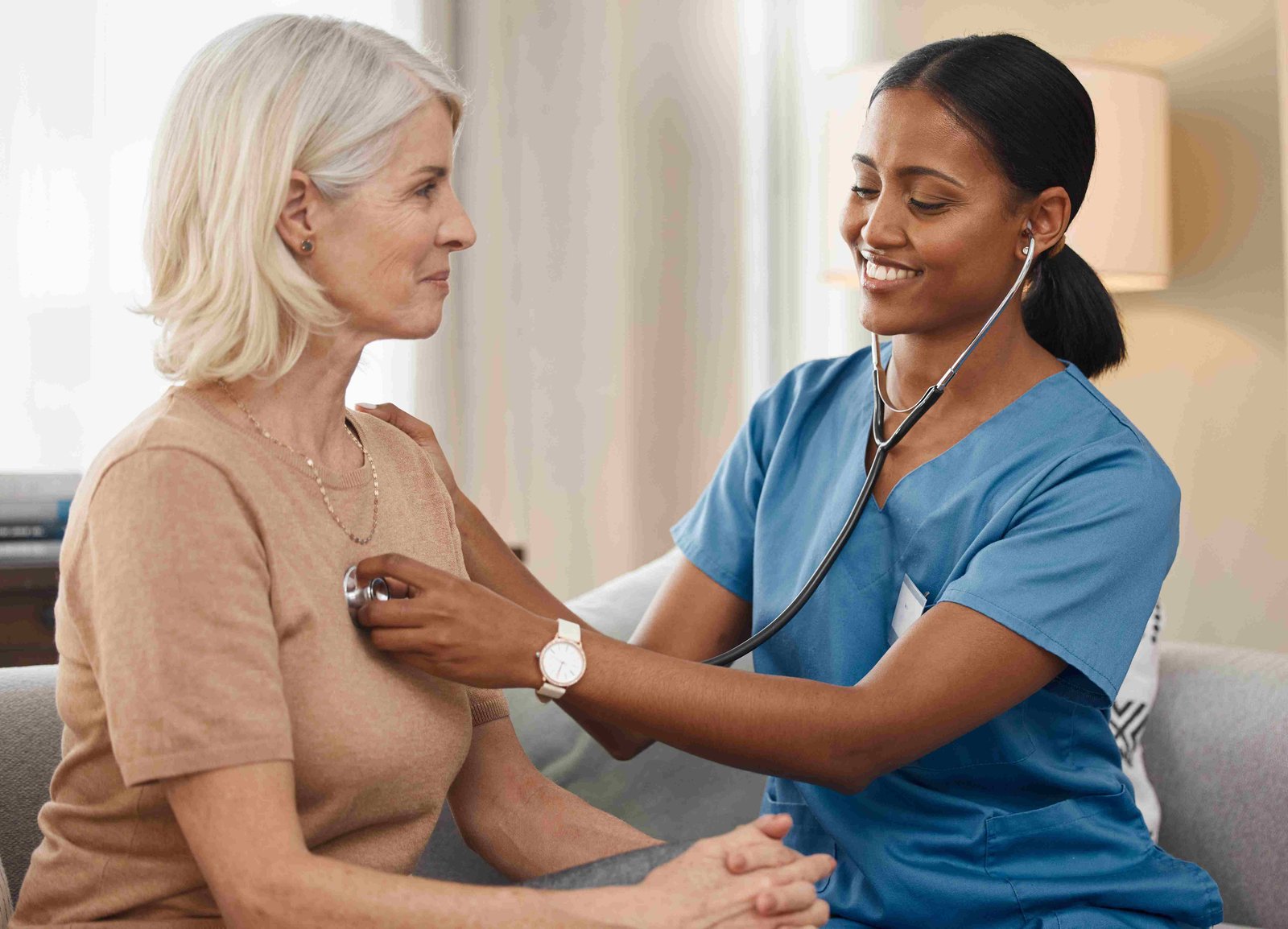
Elderly Care Service caregivers at home means having a helper come to your house. This helper provides Elderly Care Service services to older people. Many elders want to stay in their own homes as they get older.
About 43.5 million people in America help care for adults or children. Most of these helpers are family members. But professional Elderly Care Service providers can help too.
Elderly Care Service caregivers make the elderly feel much better in many ways. They help with daily tasks. They provide friendship. They keep the Elder safe. They help the Elder stay healthy.
This guide shows how the Elderly Care Service at home helps the elderly feel better. We will look at all the ways in which the Elderly Care Service makes life better for older adults.
Physical Health Support
Daily Living Help
Elderly Care Service providers help the elderly with basic daily tasks. They help with bathing and getting dressed. They help with brushing teeth and combing hair.
Many elders find these tasks hard to do alone. Joint pain makes moving difficult. Poor balance makes bathing scary. Elderly Care Service makes these tasks safe and easy.
Elderly Care Service assistants also help the elderly get in and out of bed. They help them use the bathroom. They make sure the Elder stays clean and comfortable.
Medicine Management
Taking medicine correctly is very important for the Elderly Care Service. Many elderly people take several medicines each day. It’s easy to forget doses or mix up pills.
Elderly Care Service providers help organise medicines. They set up pill boxes. They remind Elder when to take each medicine. They make sure the Elder takes the right amount.
This helps prevent dangerous medicine mistakes. It helps Elder stay healthy. It gives families peace of mind about the Elderly Care Service.
Food and Nutrition
Good food helps Elder stay strong and healthy. But many elders have trouble cooking. Shopping for food can be hard, too.
Elderly Care Service providers help plan healthy meals. They go grocery shopping. They cook nutritious food. They make sure the Elder eats enough each day.
Elderly Care Service assistants also help the elderly who have trouble eating. They cut food into small pieces. They help feed the elderly who need assistance. This helps prevent weight loss and malnutrition in the Elderly Care Service.
Health Monitoring
Elderly Care Service providers watch for health changes in the elderly. They check blood pressure and temperature. They notice when the Elder feels sick or tired.
They keep track of symptoms. They talk to doctors when needed. They help schedule medical appointments. This Elderly Care Service approach helps catch health problems early.
Early detection means better treatment. It can prevent small problems from becoming big ones in the Elderly Care Service.
Social Connection and Engagement
Family Connections
Caregivers help the elderly stay connected with family. They help make phone calls. They help with video chats. They assist with email and texting. They also help arrange family visits. They make sure the house is ready for guests. They help the Elder prepare for special occasions.
Strong family bonds are important for happiness. Caregivers help maintain these connections.
Community Activities
Many elders want to join community events. But they may need help getting there. They may need assistance participating. Caregivers can drive the Elder to activities. They help them join senior centres. They assist with religious services. They help with volunteer work.
Staying active in the community helps Elders feel valued. It gives them purpose and meaning.
Maintaining Friendships
Old friendships are precious to Elder. But it can be hard to stay in touch. Friends may live far away or have health problems too. Caregivers help the Elder call their friends. They help arrange visits. They may drive Elder to see friends. They help maintain these important relationships.

Safety and Security Benefits
Fall Prevention
Falls are very dangerous for the elderly. They can cause serious injuries. They can lead to hospital stays. Caregivers help prevent falls in many ways. They remove tripping hazards. They install safety bars. They make sure the elderly use walking aids correctly.
They also watch for signs of balance problems. They help the Elder move safely around the house. This greatly reduces fall risk.
Emergency Response
Medical emergencies can happen anytime. An elderly person living alone may not be able to call for help. This can be life-threatening. Caregivers provide 24-hour emergency response. They can call 911 quickly. They can provide first aid. They can contact family members.
This fast response can save lives. It gives Elders and their families peace of mind.
Home Security
Elder can be targets for crime. They may have trouble seeing who’s at the door. They may not notice security problems. Caregivers help keep homes secure. They lock doors and windows. They screen visitors. They notice unusual activity. They also help the Elder avoid scams. They protect against people trying to steal money or personal information.
Types of Home Caregivers
Professional Caregivers
There are different types of professional caregivers. Each has different training and skills. Home health aides help with basic daily care. They assist with bathing, dressing, and meals. They provide companionship and light housekeeping.
Certified nursing assistants have more medical training. They can help with some medical tasks. They work under nurse supervision. Licensed nurses provide skilled medical care. They give medicines and treatments. They monitor complex health conditions.
Companion Caregivers
Companion caregivers focus on social and emotional support. They provide friendship and conversation. They help with errands and light housework. They don’t provide medical care. But they offer important emotional support. They help the Elder stay socially connected.
Specialized Caregivers
Some caregivers have special training. Dementia caregivers know how to help confused elders. Palliative care specialists help with serious illnesses. These specialised caregivers have extra skills. They provide expert care for specific conditions. They help families navigate difficult situations.
Choosing the Right Caregiver
Assessing Needs
The first step is figuring out what help is needed. Does the senior need medical care? Do they need help with daily tasks? Do they mainly need companionship? Make a list of all the areas where help is needed. Think about current needs and future needs, too. This helps find the right type of caregiver.
Checking Qualifications
Always check caregiver credentials. Make sure they have proper training. Ask to see certificates and licenses. Check references from other families. Ask about their experience with similar situations. Make sure they have clean background checks.
Personality Match
The caregiver’s personality matters a lot. They will spend lots of time with the senior. They need to get along well. Look for caregivers who are patient and kind. They should be good listeners. They should respect the seniors’ personalities and preferences.
Trial Periods
Start with short trial periods. This lets everyone see if it’s a good match. The senior can decide if they feel comfortable. During the trial, watch how the caregiver interacts. Do they seem caring and respectful? Does the senior seem happier? If it’s not working out, try someone else. Finding the right match is worth the effort.
Future of Home Caregiving
Growing Demand
The need for home caregivers is growing fast. Family caregivers provide $600 billion every year in unpaid labour. As the population ages, more professional help will be needed. By 2030, there will be 73 million Americans over age 65. Many will need some type of care assistance. The home care industry is expanding to meet this need.
Technology Advances
New technology will make home care even better. Robot assistants may help with basic tasks. AI systems could monitor health conditions. Telemedicine will connect the elderly with doctors from home. Smart homes will provide safety features. These advances will improve care quality.
Training Improvements
Caregiver training programs are getting better. New courses teach specialised skills. Dementia care training is expanding. Technology training helps caregivers use new tools. Cultural sensitivity training improves care for diverse elders. Better training means better care.
Policy Changes
Government policies are supporting home care more. Medicaid programs are expanding home care coverage. Tax incentives help families pay for care. New regulations ensure quality standards. Caregiver certification requirements are improving. These changes protect the Elder and improve care.
Additional Resources
Finding Caregivers
- JGC Healthcare: Professional home care services in Virginia
- Ageing and Disability Services: Local government programs
- Area Agency on Aging: Community resources and referrals
Financial Assistance
- Medicare: Coverage for skilled home health care
- Medicaid: Personal care services coverage
- Veterans Administration: Benefits for veteran families
- Long-term care insurance: Private coverage options
With proper support and planning, the elderly can enjoy their golden years safely at home. Professional caregivers make this possible while providing peace of mind for families.
Conclusion
JGC HealthCare helps Elderes to feel better in many important ways. They provide physical care and emotional support. They help with daily tasks and medical needs.
They keep the Elder safe and socially connected. They preserve independence and dignity. They improve the quality of life for the elderly and their families.
Choosing the right caregiver takes time and effort. But the benefits are enormous. The elderly can age comfortably at home with proper support.
If your family is considering home care, start by assessing needs. Research qualified caregivers and agencies. Companies like JGC Healthcare offer experienced, compassionate care.
Don’t wait until a crisis happens. Planning ahead ensures better outcomes. Good home care can transform the ageing experience for your loved one.
The investment in professional caregiving pays dividends in health, happiness, and peace of mind. It allows Elders to live their best life possible in the comfort of their home.
